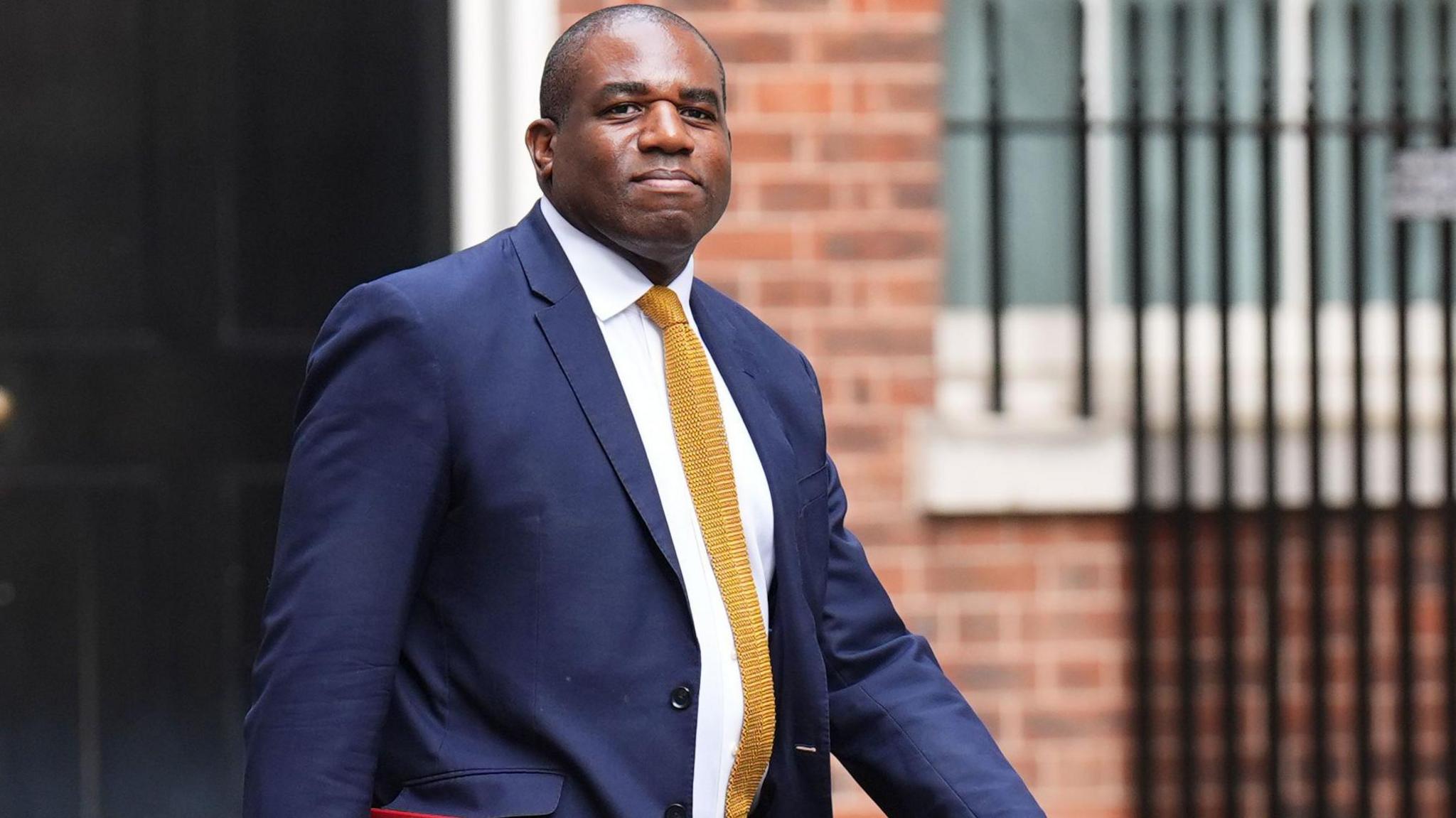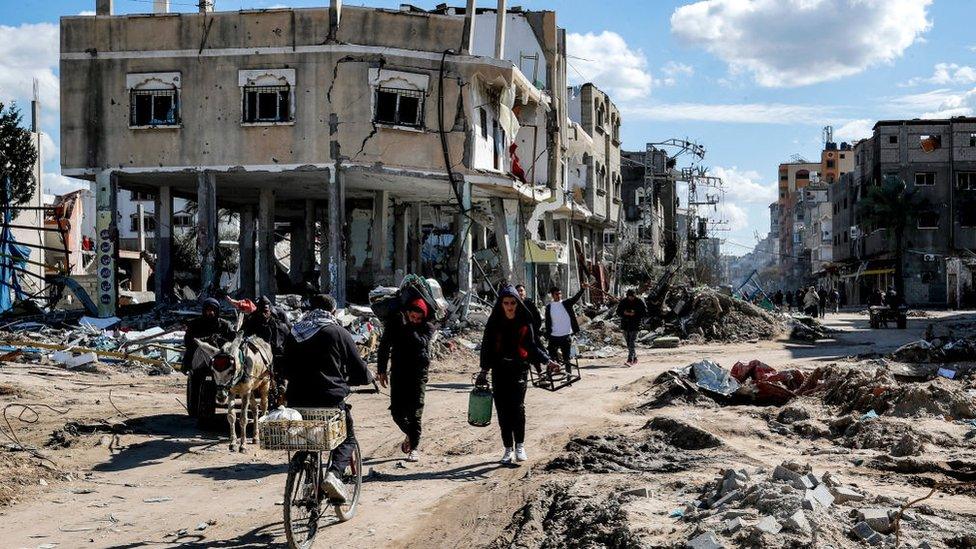Foreign Office official resigns over Israel arms sales

- Published
A British Foreign Office official who worked on counter terrorism has resigned in protest at arms sales to Israel, saying the UK government “may be complicit in war crimes”.
Mark Smith wrote to colleagues on Friday, saying he had raised concerns “at every level” in the Foreign Office, including through an official whistle blowing mechanism.
Mr Smith, who was based at the British Embassy in Dublin, added he had received nothing more than basic acknowledgments.
The Foreign, Commonwealth and Development Office (FCDO) declined to comment on an individual case but said the government was committed to upholding international law.
The resignation email, which has been seen by the BBC, was sent to a wide set of distribution lists including hundreds of government officials, embassy staff and special advisers to Foreign Office ministers.
Details of Mr Smith’s resignation were first broken by the journalist Hind Hassan, external.
Mr Smith said he had previously worked in Middle East arms export licensing assessment for the government and “each day” colleagues were witnessing “clear and unquestionable examples” of war crimes and breaches of international humanitarian law by Israel in Gaza.
“Senior members of the Israeli government and military have expressed open genocidal intent, Israeli soldiers take videos deliberately burning, destroying and looting civilian property,” he wrote.
“Whole streets and universities have been demolished, humanitarian aid is being blocked and civilians are regularly left with no safe quarter to flee to. Red Crescent ambulances have been attacked, schools and hospitals are regularly targeted. These are War Crimes.”
He said there was “no justification for the UK's continued arms sales to Israel”.
The FCDO said Foreign Secretary David Lammy had initiated a review “on day one in office” to assess whether Israel was complying with international humanitarian law.
While hundreds of officials in the UK, Europe and the US have registered unprecedented levels of dissent at their governments’ policies towards Israel over the war in Gaza, there have been far fewer known cases of so-called principled resignations, meaning Mr Smith’s case is extremely rare for the British government.

Foreign Secretary David Lammy has initiated a review to assess whether Israel was complying with international law
Details of Mr Smith's resignation first emerged when the journalist Hind Hassan posted a copy of its contents on the social media platform X, external on Friday.
According to the email, his role was “Second Secretary Counter Terrorism” - understood to be a relatively junior rank, but one in which he described himself as “a subject matter expert in the domain of arms sales policy” after “a long career in the diplomatic service”.
His email continued: “Ministers claim that the UK has one of the most ‘robust and transparent’ arms export licensing regimes in the world, however this is the opposite of the truth.”
“As a fully cleared officer raising serious concerns of illegality in this Department, to be disregarded in this way is deeply troubling. It is my duty as a public servant to raise this.”
A source close to Mr Smith said his email was limited to internal government addressees and he did not resign publicly.
Since the story has emerged in public, Mr Smith has issued a statement calling on the government to “listen to the concerns” of civil servants, adding that he was previously the lead author of the central assessment governing the legality of UK arms sales in the Middle East and North Africa Directorate.
He said: “It was my job to gather all relevant information regarding civilian casualties, international law compliance as well as assess the commitment and capabilities of the countries in question.”
“To export arms to any nation, the UK must be satisfied that the recipient nation has in place robust procedures to avoid civilian casualties and to minimize harm to civilian life. It is impossible to argue that Israel is doing that.”
“I have written to the Foreign Secretary informing him of my resignation and urging him to urgently review the UK approach to the situation in Gaza. I sincerely hope that he will listen to the concerns of Civil Servants on this issue and make the necessary changes.”
Since 2008, the UK has granted licences for weapons exports to Israel worth £574m ($727m) in total, according to the Campaign Against Arms Trade (CAAT).
The UK government has recently played down the scale of the supply, calling it "relatively small" at £42m ($53m) in 2022.
Israel has repeatedly denied breaching international humanitarian law in Gaza.
Responding to previous cases of dissent by Western officials over policy and arms supply, Israel’s government has said it is acting to defeat Hamas as “a genocidal terrorist organisation which commits war crimes as well as crimes against humanity".
In May, the chief prosecutor of the International Criminal Court (ICC) applied for arrest warrants for Israel’s prime minister and defence minister, as well as for leaders of Hamas, for war crimes, but these have yet to be issued.
An FCDO spokesperson said: “This government is committed to upholding international law. We have made clear that we will not export items if they might be used to commit or facilitate a serious violation of International Humanitarian Law.”
The spokesperson added: “There is an ongoing review process to assess whether Israel is complying with International Humanitarian Law, which the Foreign Secretary initiated on day one in office.
We will provide an update as soon as that review process has been completed.”
- Published2 February 2024
